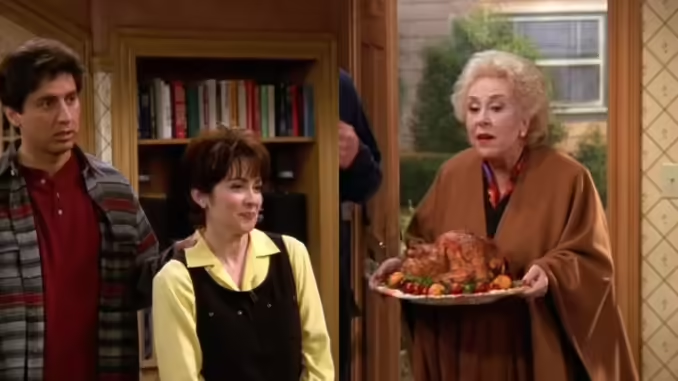
10 Things That Make No Sense About Everybody Loves Raymond
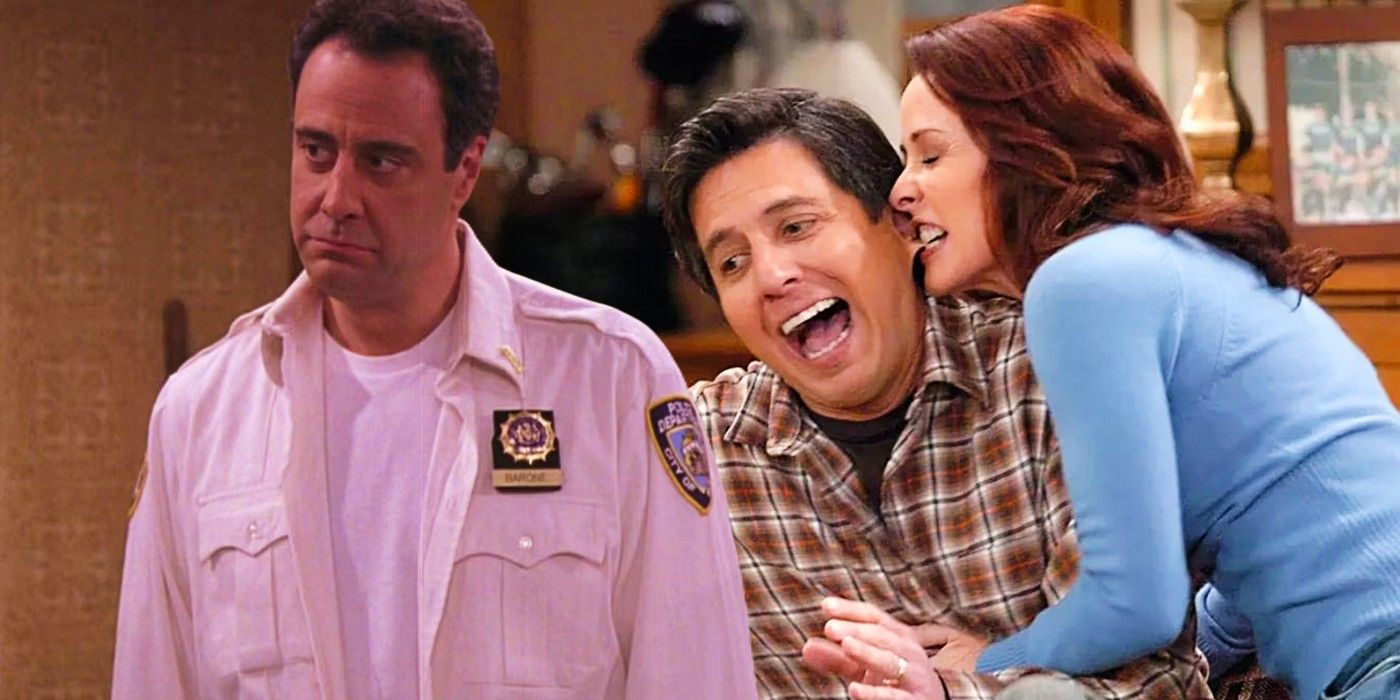
From the rampant sexism to the weird living situations, these aspects of Everybody Loves Raymond are just confusing.
Everybody Loves Raymond stands as a cornerstone of early 2000s pop culture, captivating audiences from 1996 to 2005 with its relatable portrayal of family dynamics. This beloved sitcom, while reflecting the era’s social fabric, offered a comedic lens through which viewers navigated the complexities of familial relationships, embedding itself in the heart of television history. Its charm, derived from the depiction of everyday challenges faced by the Barone family, resonates with many who hold dear their own family ties, making its humor and dilemmas timeless despite the show’s apparent aging.
However, as with any work that mirrors the evolving tapestry of society, Everybody Loves Raymond harbors elements that have not aged as gracefully, raising eyebrows in today’s context. Critics and fans alike have scrutinized the series for its portrayal of gender roles, parenting, and marital dynamics, labeling some aspects as outdated or problematic. Beyond these considerations, certain narrative choices and character behaviors within the show spark questions, revealing inconsistencies and peculiarities that, while often overlooked in the show’s heyday, now prompt a closer examination of what makes Everybody Loves Raymond both endearing and perplexing to contemporary audiences.
Everybody Loves Raymond – Trailer
Everybody Loves Raymond is one sitcom that fans never get tired of rewatching, especially when it comes to these fan-favorite holiday specials.
10 Why Debra Always Stays At Home
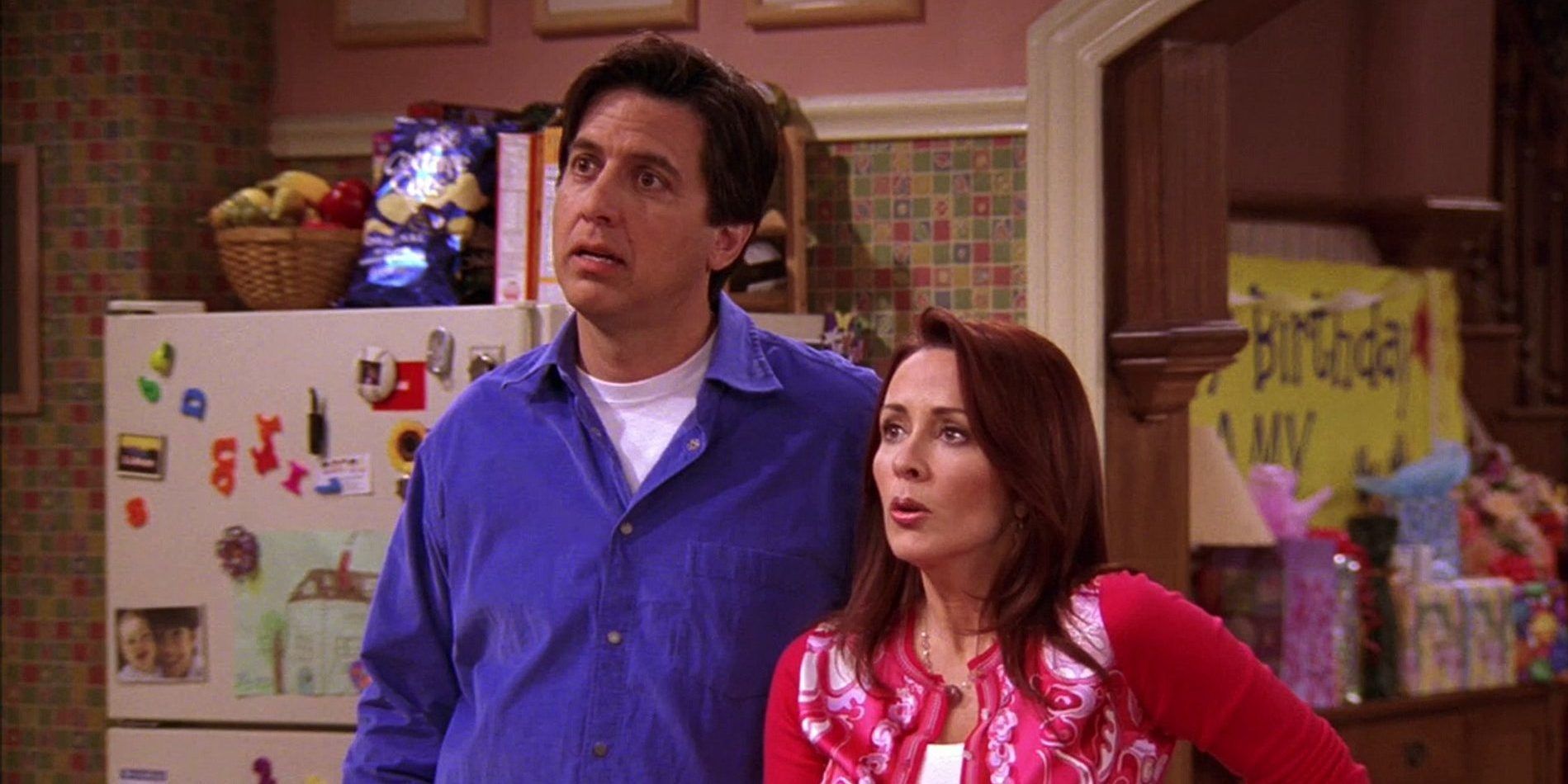
Debra Always Had A Desire To Persue Professional Endeavors
While choosing to be a stay-at-home parent remains a deeply personal and valid decision, Debra’s character is portrayed as notably intelligent and competent, often surpassing Raymond in these areas.
In the landscape of Everybody Loves Raymond, Debra’s role as a stay-at-home mom, while reflective of the period’s familial norms, sparks intriguing discussions about gender roles and personal fulfillment. The show, beginning its run in 1996 and concluding in 2005, captures a snapshot of cultural attitudes that have since evolved, making certain aspects feel less aligned with contemporary values.
While choosing to be a stay-at-home parent remains a deeply personal and valid decision, Debra’s character is portrayed as notably intelligent and competent, often surpassing Raymond (Ray Romano) in these areas. This juxtaposition raises eyebrows, especially considering her expressed desires to pursue professional endeavors outside the home. The absence of even part-time employment for Debra, despite her capabilities and aspirations, invites scrutiny into the series’ portrayal of career versus family life, highlighting a narrative choice that may appear increasingly anachronistic to modern viewers.
9 The Hateful Relationship Between Frank & Marie
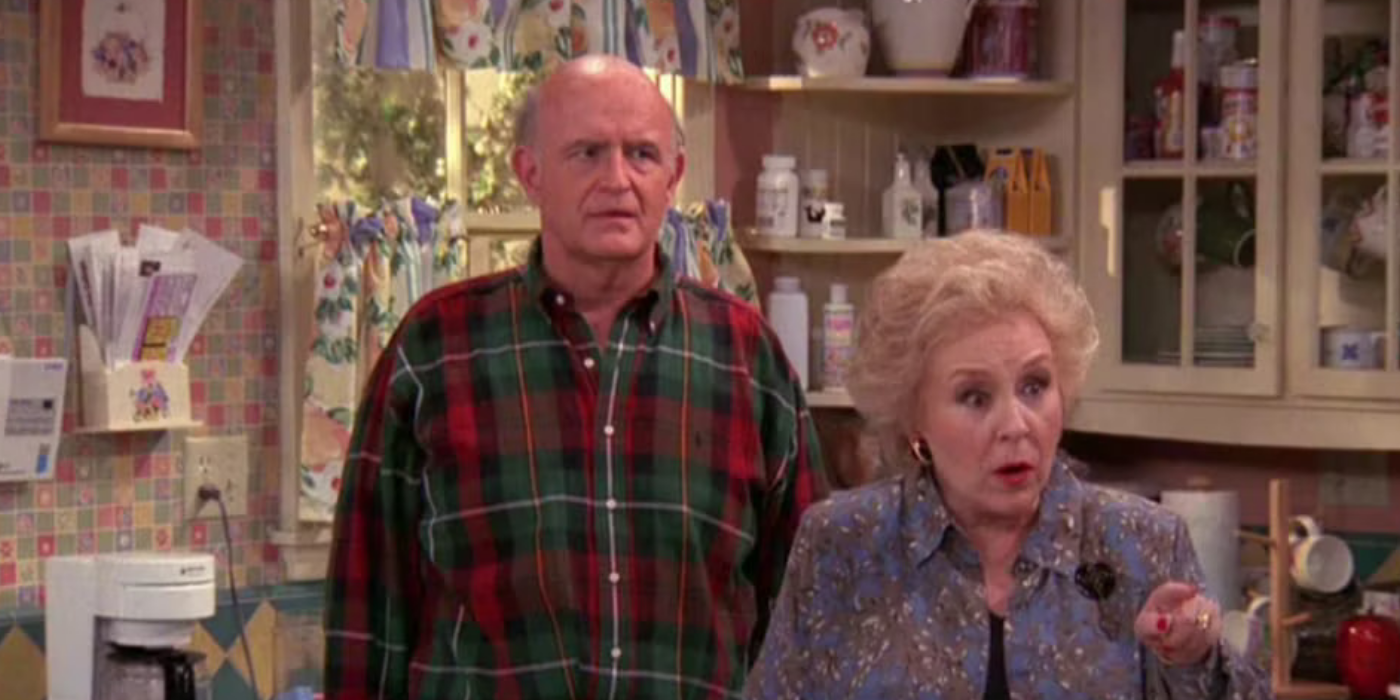
They Have One Of The Most Toxic Relationships In Sitcoms
The portrayal of Frank and Marie’s relationship in Everybody Loves Raymond often walks a fine line between comedic exaggeration and discomforting tension. Designed as caricatures for humor, their interactions frequently veer into what could be perceived as verbal abuse, pushing the boundaries of the show’s comedic intent. This dynamic, while part of the sitcom’s charm, at times overshadows the laughter with its intensity and realism.
The constant bickering and open hostility, intended to entertain, paradoxically invite viewers to question the nature of their amusement.
The constant bickering and open hostility, intended to entertain, paradoxically invite viewers to question the nature of their amusement. In the evolving context of television comedy, their relationship exemplifies the delicate balance between generating laughs and navigating the portrayal of realistic, albeit troubled, marital dynamics. This aspect of the show, highlighting the complexities of human relationships through a comedic lens, prompts a reevaluation of where humor ends and the reflection on real-life relationship challenges begins.
From sibling rivalry to his overbearing mother, the long-suffering Raymond faced many struggles, and had many hilarious responses to them.
8 The Fact That Raymond Is So Against Helping Out His Wife
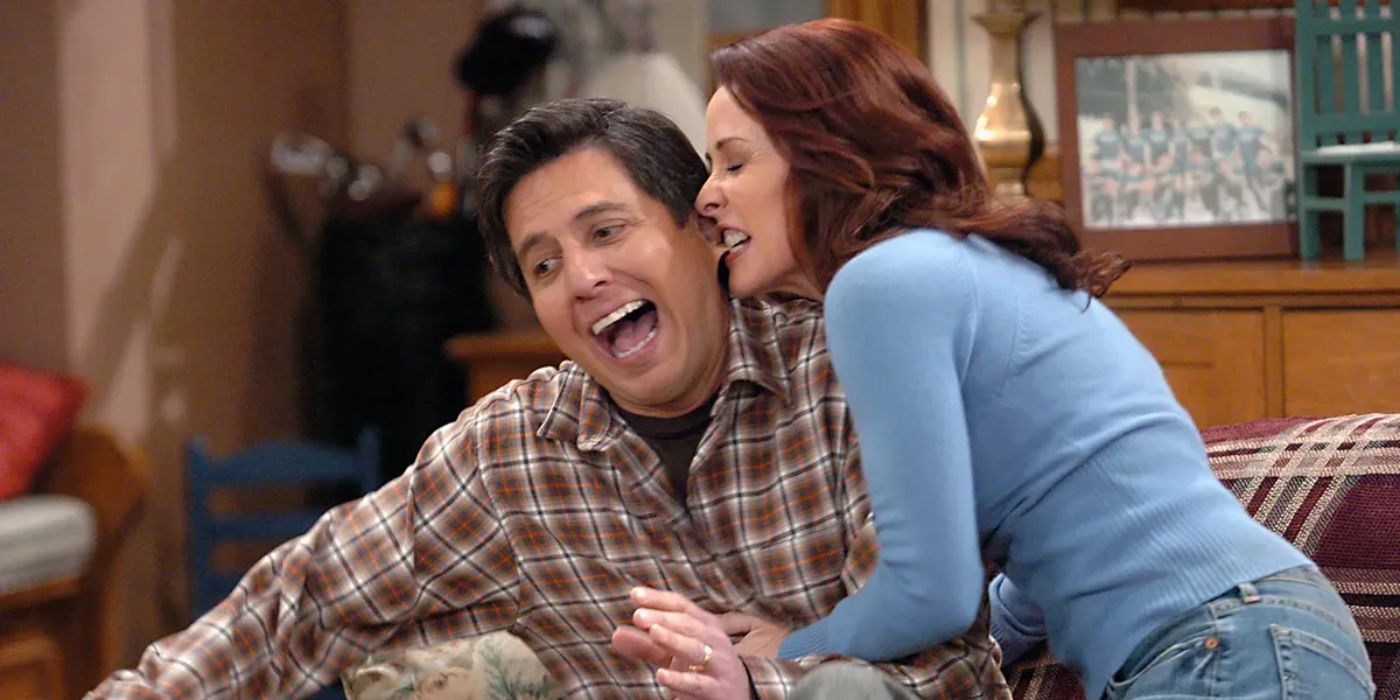
His Refusal To Take Part In Everyday Chores Grew Tiresome
This portrayal, while aiming for humor, often struck a discordant note with audiences, as Ray’s character is otherwise shown to be quite capable.
In Everybody Loves Raymond, Ray’s reluctance to assist Debra with household chores is exaggerated for comedic effect, embodying the classic sitcom trope of the inept husband and the nagging wife. This portrayal, while aiming for humor, often struck a discordant note with audiences, as Ray’s character is otherwise shown to be quite capable. His persistent refusal to help with even the simplest tasks not only grew tiresome but also served to highlight and critique the cultural attitudes of the time.
The repetitive nature of this gag, rather than being amusing, laid bare the underlying issues with societal expectations and gender roles prevalent in the era. By magnifying this aspect of their marriage to the point of absurdity, the show inadvertently prompts viewers to reflect on the dynamics of their own relationships and the progress (or lack thereof) in addressing such disparities in partnership roles.
7 Why Robert Spends So Much Time Around His Parents
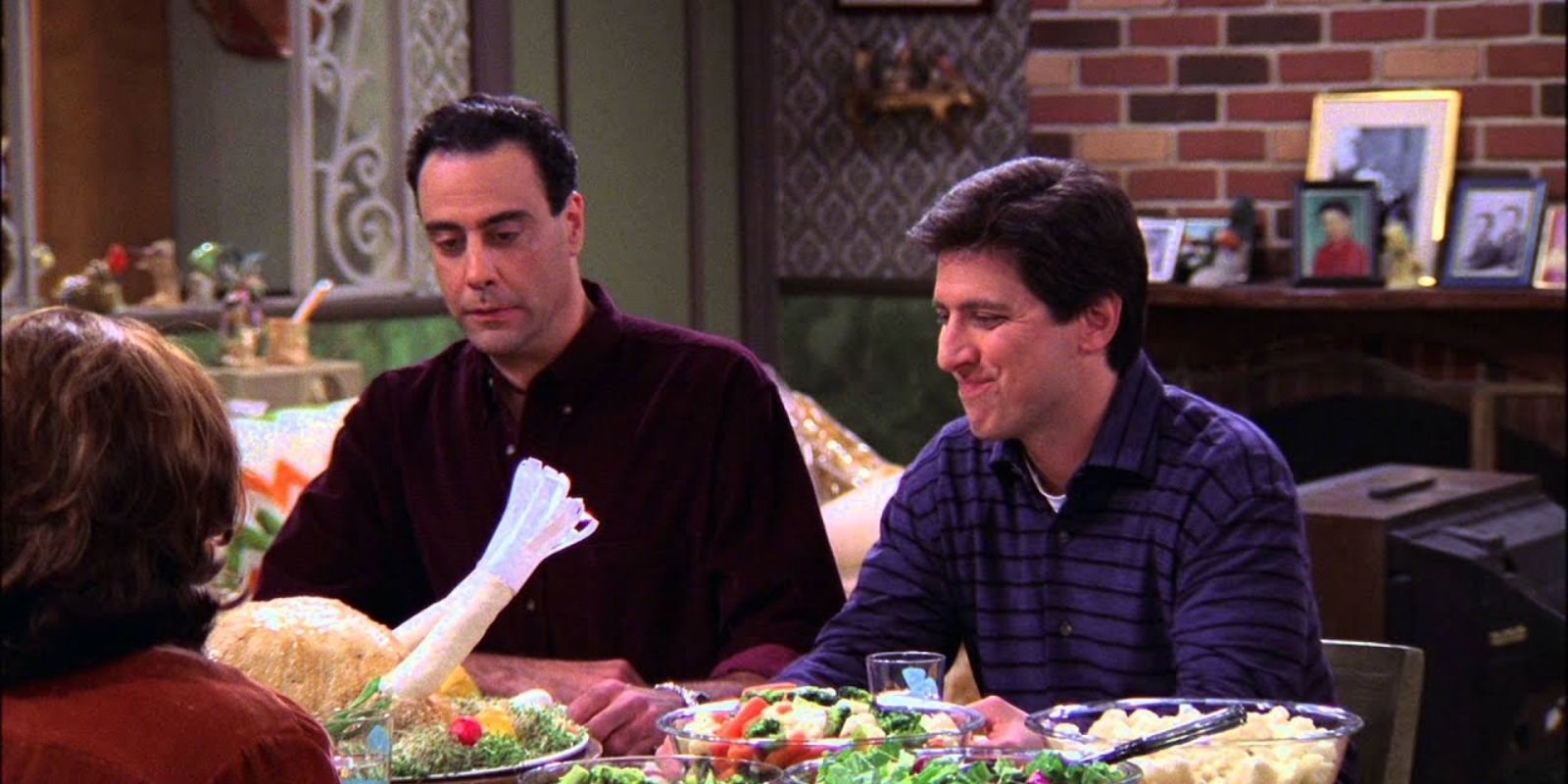
He Has His Own Life & Career In New York City
Robert’s frequent presence at his parents’ home in Everybody Loves Raymond, despite the palpable familial tension, presents a curious dynamic within the Barone family. As a character often portrayed as the underdog, overshadowed by Raymond’s success and favoritism from their parents, Robert’s continual return to the family fold underscores a complex blend of loyalty and personal struggle. The show hints at the deep-seated value the Barones place on family, yet it begs the question of why Robert, an adult with his own life and career in New York City, does not assert more independence and establish healthier boundaries.
This aspect of his character not only highlights the sometimes-difficult nature of family relationships but also reflects the challenges of balancing individual happiness with familial obligations. Robert’s situation, marked by his apparent inability to distance himself from a sometimes toxic family environment, offers viewers a poignant reflection on the sacrifices and choices one navigates within the intricate web of family ties.
Somehwere in queens everybody loves raymond
The setting of Ray Romano’s film Somewhere in Queens may seem like a minor detail, but it has greater significance than one might expect.
6 How Sexist Everybody Loves Raymond Is
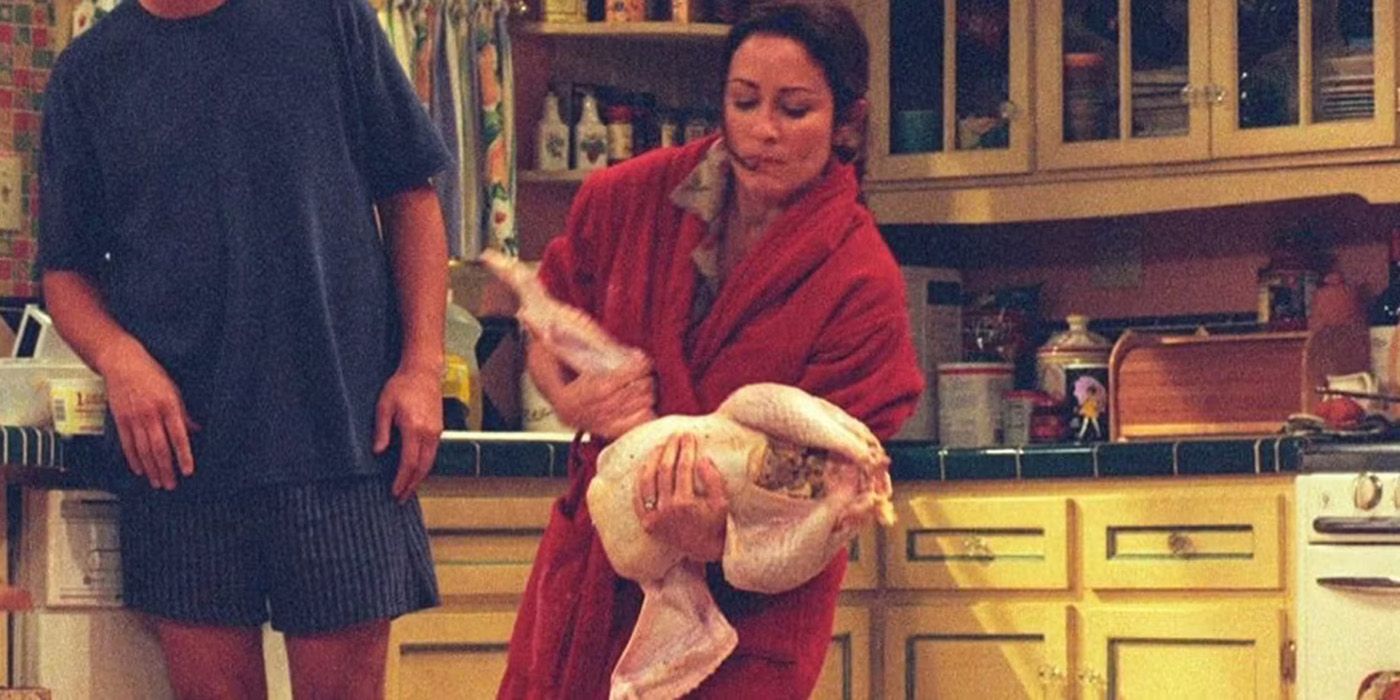
Many Disparaging Jokes Crossed The Line
Unlike contemporaries such as Friends, which showcased women in diverse roles and careers, Everybody Loves Raymond confined its primary female characters to conventional domestic roles.
Everybody Loves Raymond, despite its popularity, has faced criticism for its portrayal of gender roles, standing out for its marked sexism amidst sitcoms of its era. This observation isn’t merely peripheral but rather a core issue meriting explicit mention. Unlike contemporaries such as Friends, which showcased women in diverse roles and careers, Everybody Loves Raymond confined its primary female characters to conventional domestic roles.
The series, by limiting women’s narratives and reinforcing outdated stereotypes, inadvertently reflects and perpetuates the gender biases prevalent at the time. The dialogue often included disparaging remarks about women’s roles and appearances, further compounding the issue. Such content not only undermines the complexity and diversity of women’s experiences but also highlights the necessity of scrutinizing media through a critical lens, acknowledging the subtle ways in which it can influence societal perceptions and attitudes toward gender equality.
5 How Ray Makes As Much Money As He Does
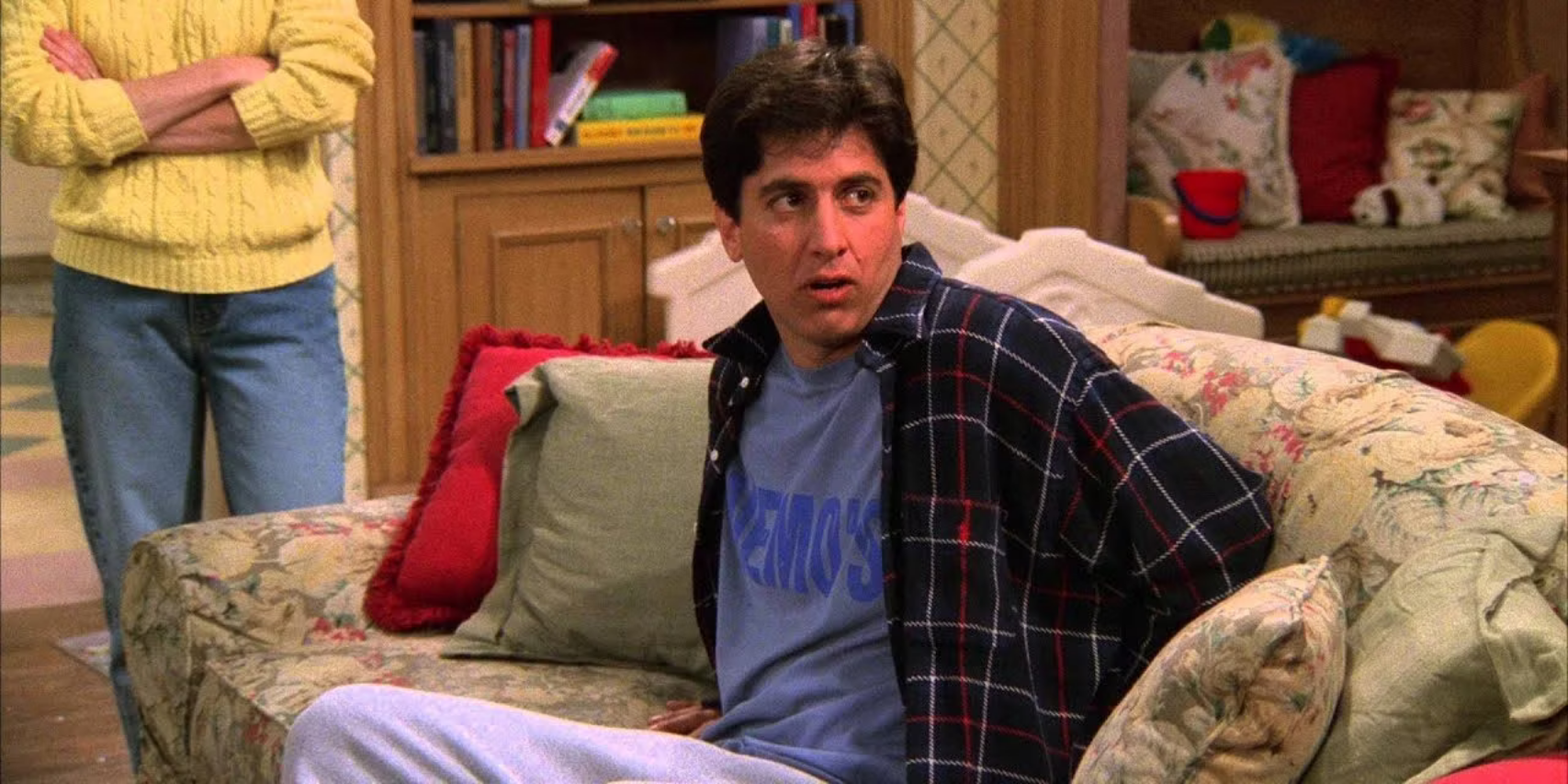
His Income Isn’t Realistic Of What A Sports Writer Would Make
The depiction of Ray’s career as a sports writer in Everybody Loves Raymond raises eyebrows over the realism of his financial success. Like many sitcoms, the show glosses over the details of career struggles and income realism. Ray not working for a major publication but still managing to support a comfortable lifestyle presents a somewhat idealized portrayal of the profession.
Considering the show’s setting nearly a quarter-century ago, some leeway can be given for differences in the economic landscape. However, the ease with which Ray seems to secure his position and the income it yields feels incongruent with the realities faced by many in the journalism field, especially in specialized areas like sports writing. This portrayal, while serving the show’s narrative needs, subtly disconnects from the financial challenges and competitive nature of such a career path, offering a sanitized glimpse into the life of a middle-class family that may not fully align with the professional hurdles actual sports writers encounter.
The early 2000s was a great time to be a fan of the sitcom genre. We take a look back at the era’s best and most definitive television series.
4 Robert’s Weird Crush On Debra
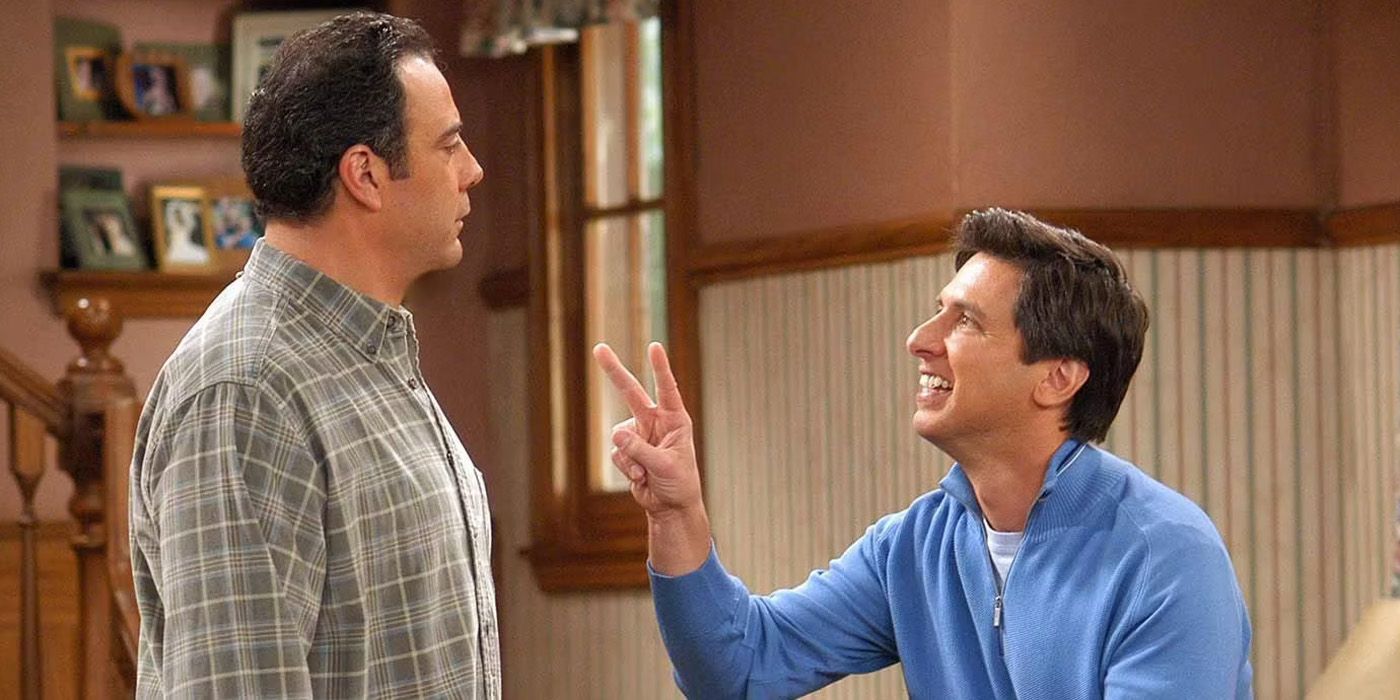
It’s The Most Awkward Relationship In Everybody Loves Raymond
Robert’s peculiar fascination with Debra in Everybody Loves Raymond emerges as one of the show’s more unsettling narrative choices. While Robert’s character often elicits sympathy due to his perennial underdog status, his crush on Debra, his brother Ray’s wife, complicates viewer perceptions. This unrequited affection and the jealousy it stems from — not just of Ray’s success but explicitly of his marriage — introduces a dynamic fraught with discomfort.
Such plotlines, intended to add layers to Robert’s character and perhaps generate laughs, instead leave the audience navigating a mix of secondhand embarrassment and concern.
The instances where Robert attempts to demonstrate a closer understanding of Debra than Ray only amplify the awkwardness, straying into territory that feels more intrusive than humorous. Such plotlines, intended to add layers to Robert’s character and perhaps generate laughs, instead leave the audience navigating a mix of secondhand embarrassment and concern. This aspect of Robert’s character challenges the balance between comedy and the portrayal of healthy familial relationships, leaning into a narrative choice that, rather than endearing, often registers as simply unsettling.
3 Why Marie Hated The Fruit Of The Month Club So Much
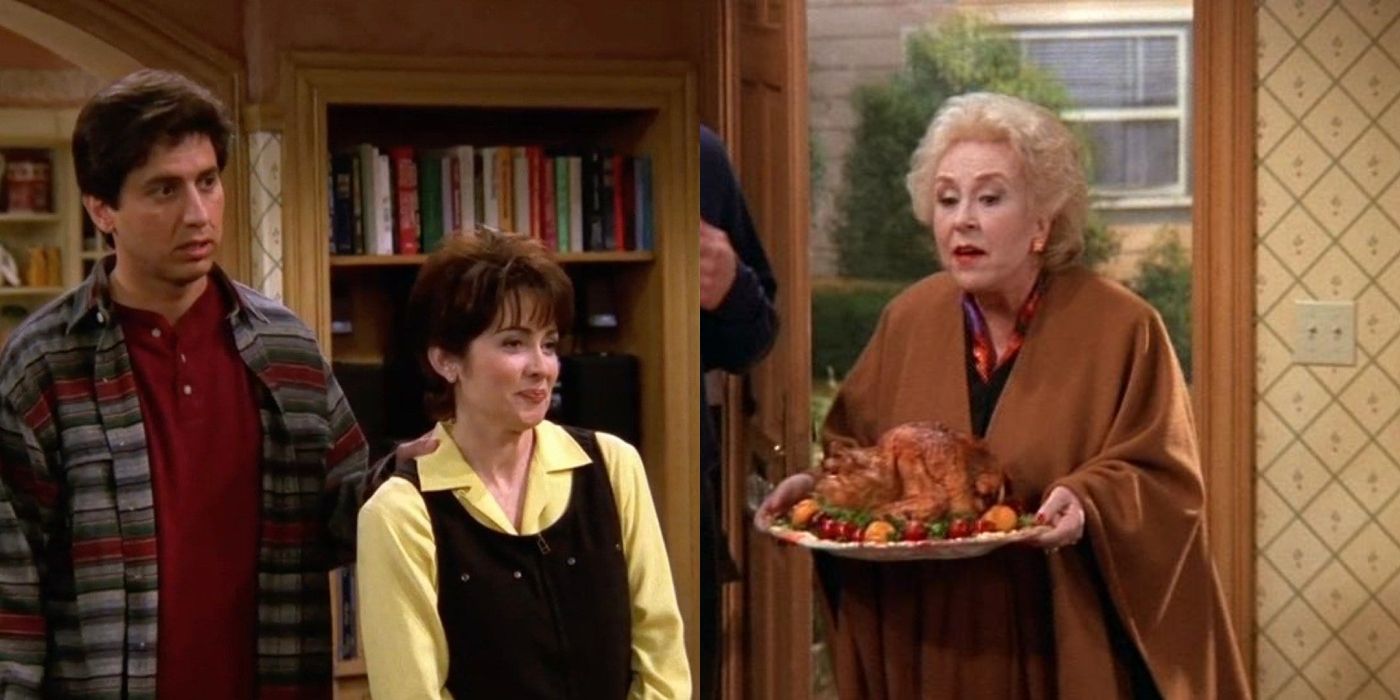
Especially As It Was A Gift From Her Favorite Son
Marie’s exaggerated aversion to the Fruit of the Month Club, a gift from Raymond in Everybody Loves Raymond, cleverly combines humor with a deeper examination of family dynamics. This running joke, while seemingly trivial and confusing as to why she hates it so much, hilariously encapsulates Marie’s characteristically critical nature, transforming a simple gift into a source of comedic tension. Beyond the surface laughter, this storyline subtly probes into why Marie often assumes a critical stance, offering a window into the complex interplay of expectations, appreciation, and familial relationships within the Barone household.
Nevertheless, this incident, though light-hearted, acts as a microcosm of the show’s larger inconsistencies, illustrating how even mundane events can reveal significant things that make no sense about Everybody Loves Raymond. However, it still gives an insights into the characters’ personalities and their interrelations, thus enriching the sitcom’s exploration of the nuanced fabric of family life.
Ed Helms as Andy Bernard in The Office & David Schwimmer as Ross Geller in Friends
Sometimes, sitcom characters have done something so completely wild that it’s surprising that it was ever forgiven, let alone forgotten about.
2 Why Ray Always Seemed So Incompetent
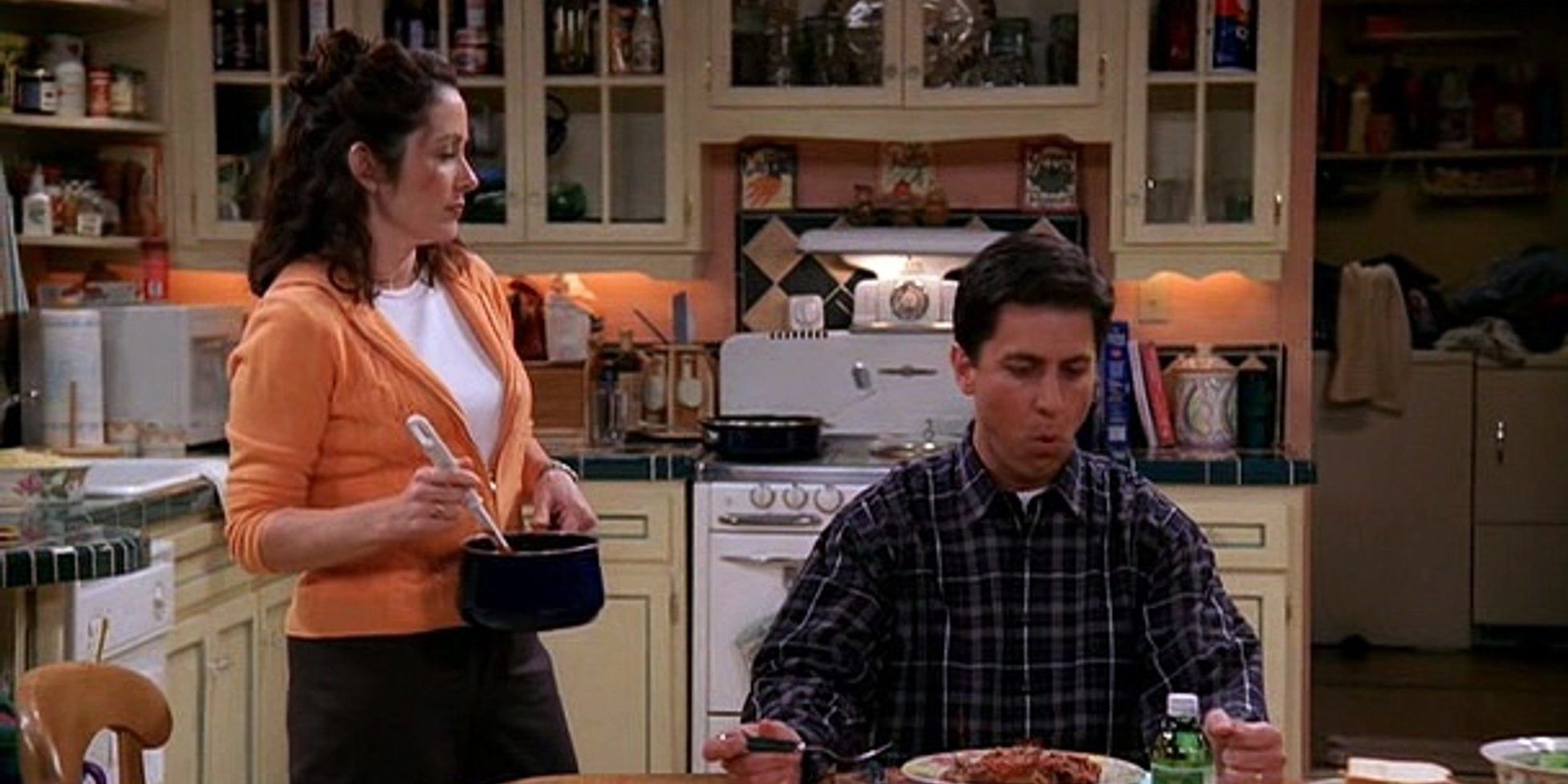
No Functional Adult Would Put A Fish In A Dishwasher
While intended to be humorous, the portrayal veers towards a critique of the stereotype that men are inherently ill-equipped for domestic tasks
Raymond’s portrayal as notably inept in domestic matters on Everybody Loves Raymond, despite his professional success, strikes a chord of dissonance with viewers. As the family’s breadwinner with a steady career, audiences should ordinarily anticipate a level of competence extending into his home life. Yet, his actions, such as the comically absurd mistake of placing fish in the dishwasher, underscore a significant discrepancy between his professional aptitude and his domestic capabilities.
This repeated motif of Raymond’s inability to navigate basic household responsibilities not only fuels the sitcom’s humor but also prompts a reflection on traditional gender roles and the expectations placed upon men and women within the family unit. While intended to be humorous, the portrayal veers towards a critique of the stereotype that men are inherently ill-equipped for domestic tasks, painting a picture that borders on the pathetic rather than the endearing.
1 Why Raymond & Debra Lived So Close To Frank & Marie
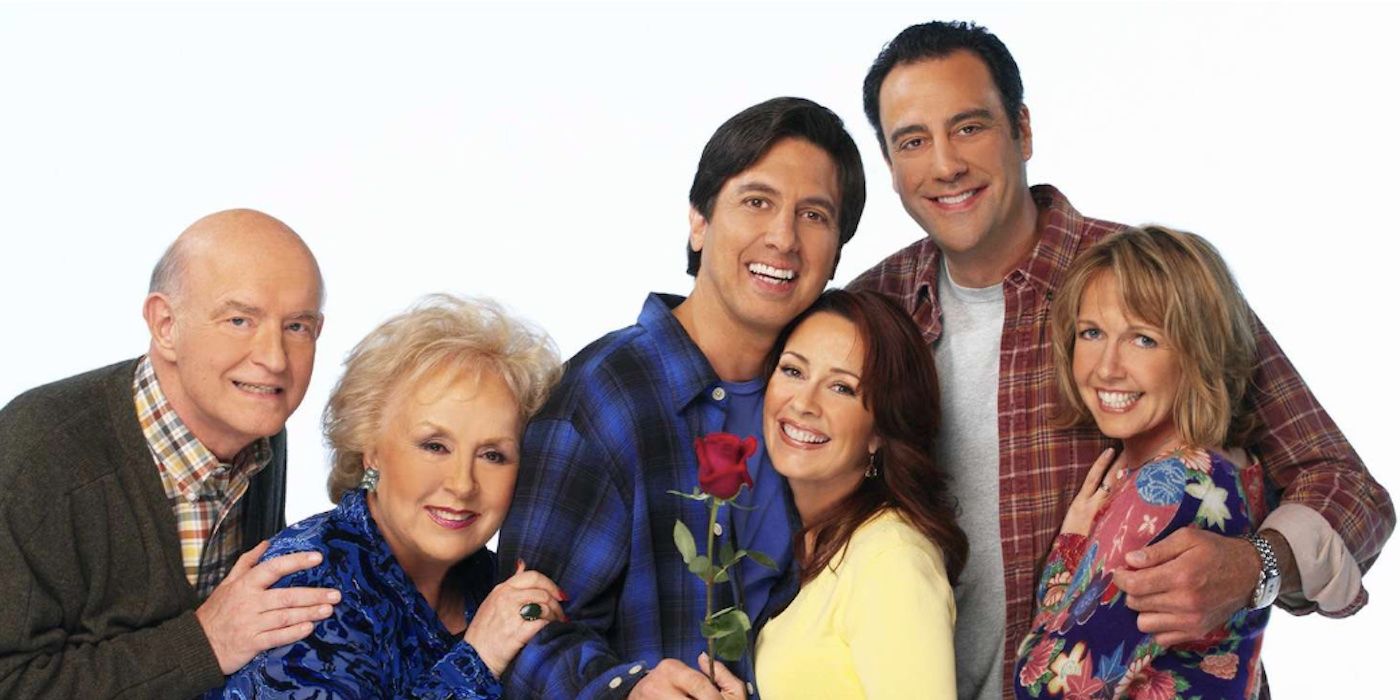
Their Geographical Proximity Invites Perpetual Discord Into Their Lives
The proximity of Raymond and Debra’s home to Frank and Marie’s in Everybody Loves Raymond often defies practical reasoning, particularly when considering the perpetual discord it invites into their lives. Despite the vastness of the Long Island/New York City area, which offers ample opportunity for comfortable distance, their choice to live directly across the street seems to complicate their existence unnecessarily. This setup, pivotal for the show’s comedic engine, paradoxically makes their lives significantly more challenging, constantly entangling them in a web of familial meddling and unsolicited intrusions.
This close living arrangement in Everybody Loves Raymond, while enriching the show’s humor, presents a curious contradiction: the Barones’ enduring commitment to family and the apparent inability to sever their deep-rooted ties, despite the clear toll it takes on their peace and autonomy. The logic behind this decision is especially puzzling considering that even a modest increase in physical distance could potentially afford them a healthier balance of familial closeness and necessary personal space.
